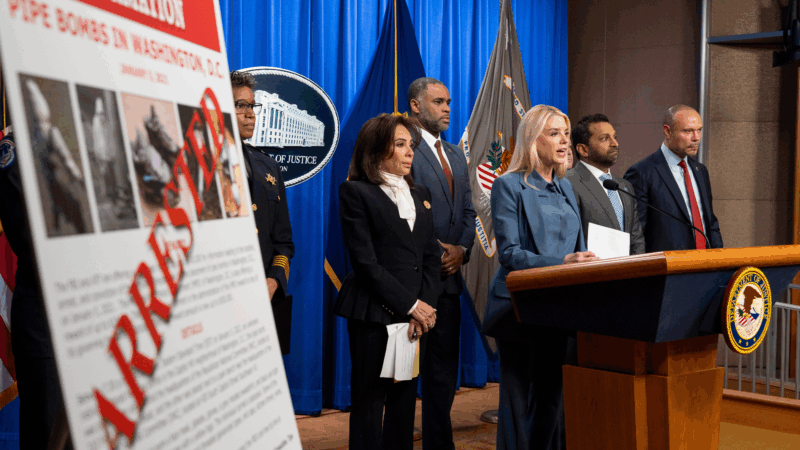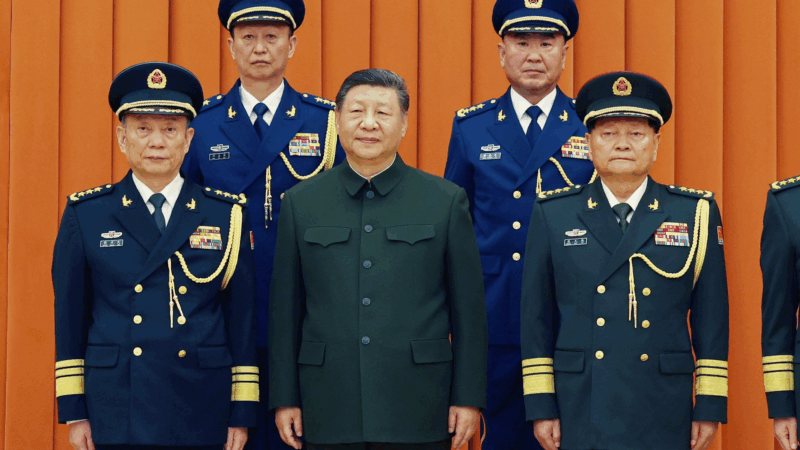President Trump brings back practice of detaining families together
The Trump administration has brought back the practice of detaining families with children as a part of an effort to crack down on immigration.
The Department of Homeland Security is reopening the Karnes and Dilley detention centers in Texas and retrofitting them for families.
Families have already been sent to the detention center in Karnes City, in southeastern Texas, DHS said. The Biden administration largely ended the practice of family detention, using the facilities to hold adults instead.
President Trump detained families during his first term in an effort to deter migration through the southern border. The George W. Bush and Obama administrations also did so, and former President Joe Biden briefly considered it.
“The bottom line is that these individuals have final deportations orders from federal judges. This Administration is not going to ignore the rule of law,” Tricia McLaughlin, spokesperson at DHS, said in a statement. “The best option for illegal aliens is to self deport. If they leave now, they may still have an opportunity to return and live the American dream.”
U.S. Immigration and Customs Enforcement, the DHS agency that processes people for deportation, has been particularly constrained since the start of the administration in finding enough people to arrest and detain those without legal status. Its 20 field offices have been tasked with a quota of at least 75 arrests per day, despite limited staffing – even as the agency struggles to find space to hold those placed in detention.
Advocates warn of harms
Immigration advocates have been quick to denounce the move of boosting detention of families, primarily for its effect on children.
“Detention is harmful and traumatic for everyone, but especially children,” Setareh Ghandehari, advocacy director of the Detention Watch Network, said in a statement. The group aims to end the practice of immigrant detention.
“Families should be able to navigate their immigration cases in [the] community with support services provided and facilitated by local community based groups.”
Critics said such detentions, including at these newly reopened facilities, resulted in the death, abuse and psychological harm of children.
“No child seeking safety should be held behind bars, period,” said Amy Fischer, director of refugee and migrant rights at Amnesty International USA.
During the Trump administration’s first term, children of migrants were separated from their parents and held in detention centers in an effort to deter more illegal migration. The move prompted widespread criticism, including from some Republicans.
The policy was ultimately reversed, although some 1,000 children taken from their parents at the border still have not been reunited with their families as of early 2024.
Tom Homan, seen as one of the architects of that policy, is now Trump’s “border czar” but before inauguration pledged that he would aim to deport families together in a humane way.
Private contractor expects “growing” government needs
The facility in Dilley reopened under an agreement between CoreCivic, a private prison company, and ICE to resume operations and hold up to 2,400 individuals. CoreCivic said in a statement that it had managed the facility from 2014 until the contract ran out in August 2024. The new contract, which expires in 2030, is expected to reach annual revenue of $180 million.
“We are entering a period when our government partners — particularly our federal government partners — are expected to have increased demand,” Damon Hininger, CoreCivic’s CEO, said in a statement. “We anticipate continued robust contracting activity throughout 2025 that will help meet their growing needs.”
The administration has been using CoreCivic contracts, as well as the Federal Bureau of Prisons, to increase its detention capacity.
Facilities in New Jersey, Ohio, Nevada, Oklahoma and Mississippi have expanded contracts with ICE since Trump started his second term.
Pipe bomb suspect told FBI he targeted U.S. political parties, memo says
The man accused of placing two pipe bombs in Washington on the eve of Jan. 6, 2021 told investigators someone needed to "speak up" for people who believed the 2020 election was stolen, prosecutors said Sunday.
Chinese military stages drills around Taiwan to warn ‘external forces’
The drills came after Beijing expressed anger at U.S. arms sales, and a statement by Japan's prime minister saying its military could get involved if China were to take action against Taiwan.
Trump and Netanyahu to meet in Florida at a crucial moment for the Gaza ceasefire
President Trump could use the face-to-face at his Mar-a-Lago estate to look for ways to speed up the peace process, as Israel's leader has been accused of not pushing his side to move fast enough.
‘Bomb cyclone’ forecasted to bring heavy snow, blizzard conditions and dangerous travel
A 'bomb cyclone' is intensifying severe winter weather for millions of people across the U.S. The system is expected to knock out power and disrupt holiday travel.
Russia sends 3 Iranian satellites into orbit, report says
The report said that a Russian rocket sent the satellites on Sunday from a launchpad in eastern Russia.
Viral global TikToks: A twist on soccer, Tanzania’s Charlie Chaplin, hope in Gaza
TikToks are everywhere (well, except countries like Australia and India, where they've been banned.) We talk to the creators of some of the year's most popular reels from the Global South.








